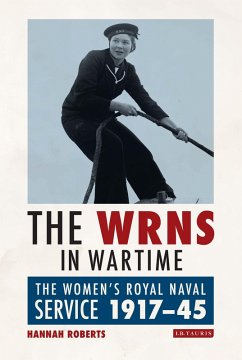The Women's Royal Naval Service (WRNS) was created in 1917, re-formed in 1938 and maintained after 1945. This book determines for the first time the reasons for the expansion and contraction of the service and the impact key individuals had on it and in turn the influence it had on its members. Hannah Roberts offers new insights into a previously little studied British military institution, which celebrates its centenary in 2017. She shows how political and military decision-making within the fluctuating national security situation, coupled with a growing cultural acceptability of women taking on military roles, allowed for the growth of the service in World War II into realms never expected of women. Although it shared a similar pattern in its formation to the Auxiliary Territorial Service (ATS) and had a similar ethos to its Air Force counterpart, the WAAF, the WRNS took on a wider-ranging role in the war, in part due to the latitude afforded to the service because of its uniquely independent origins. From 1941 onward the WRNS spread internationally and subverted the combat taboo by adopting semi-combatant roles. Using twenty-one new oral histories and a multitude of archived personal documents, this book demonstrates the pivotal importance of the Women's Royal Naval Service in both the world wars.
Bitte wählen Sie Ihr Anliegen aus.
Rechnungen
Retourenschein anfordern
Bestellstatus
Storno









